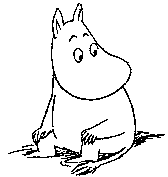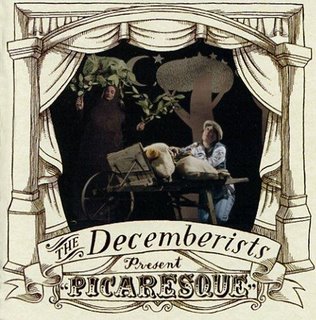Saturday, reporter
Camilla Stockmann wrote (and documented with her own photographic snapshots) quite a dramatic story in
Politiken concerned with a couple of activists, two foreigners, a man and a woman, who have been making a scene in Copenhagen art galleries lately, masturbating in front of art works, shouting insults, peeing, bringing along excrements and the like. Stockmann sets out in the first person singular to find out who they are and what they are up to.
It is a remarkable adventure which still strikes me as an epideictic piece of reporting --- epideictic as in confirmative
epideictic oratory made on special occasions like national holidays, birthdays or funerals. Traditionally, the epideictic speaker is seen to represent the community. The epideictic rhetor knows what values and ideals the auditors basically agree on, and in and by the speech these values must be enacted and consolidated.
By the rhetor
for the audience
and on behalf of the audience which means that the epideictic speaker is constituted as some sort of cultural hero (Dale Sullivan’s term). So back to Camilla Stockmann as an investigator on the art scene – what is she then?
Well, she is a determined reporter who actually finds out who the two unwelcome guests are:
Alexander Brener and Barbara Schurz who have a history of making aggressive opposition to commercial and institutional art and who published
Anti-Technologies of Resistance back in 1999. And Stockmann puts herself on the line in her story insofar as she tries to confront the two in order to be allowed to ask some questions and has a glass of water thrown in her face. Later on, by means of a determined look and a well-chosen line, she successfully wards off a glass of urine.
Camilla Stockmann never gets a chance to speak to the couple though. And after having identified them she doesn't fill the readers in about their artistic ambitions, at least not in any detail. And she never attempts her own answer to the question which is posed on the front page of
Politiken on this occasion: "Is it art to piss on art?" - or actually: She does imply a reassuring
no. Stockmann keeps herself detached along with the people she is talking to along the way. People who feel at home on the art scene and whom the readers of
Politiken can happily identify with:
The people who are bothered by the activists include "the actor Ulrich Thomsen".
It is an artist (who "is originally Swedish-French") who eventually recalls having seen the two before: "Slowly he recalls their names: 'I believe the woman's name is Barbara ... Barbara Schultz... no Shurz.' ...
A gallery owner characterizes Shurz as "berliner-cafe latte-punk" which Stockmann confirms.
And a German visiting professor at the Royal Danish Academy of Art who is witnessing Shurz peeing in a plastic cup still keeps his conversation with Stockmann going and remarks with cool detachment that
"this reminds me a bit of fluxus artist Carolee Schneeman back in the 1970'es who read aloud from a strip of paper which she pulled from her vagina. Something was at stake then. But the woman there is not good - you can tell how she doesn't feel good about herself after doing this."
Journalistic handbooks speak of the reporter's role as that of acting as a substitute for the reader and my point is: this is exactly what Stockmann is doing all too carefully. She seems to presume timidity in the readers so she offers us comfort. She keeps us classy company all along and assures us through arguments of authority not to worry: These people are harmless. They pose no threat to our community.












